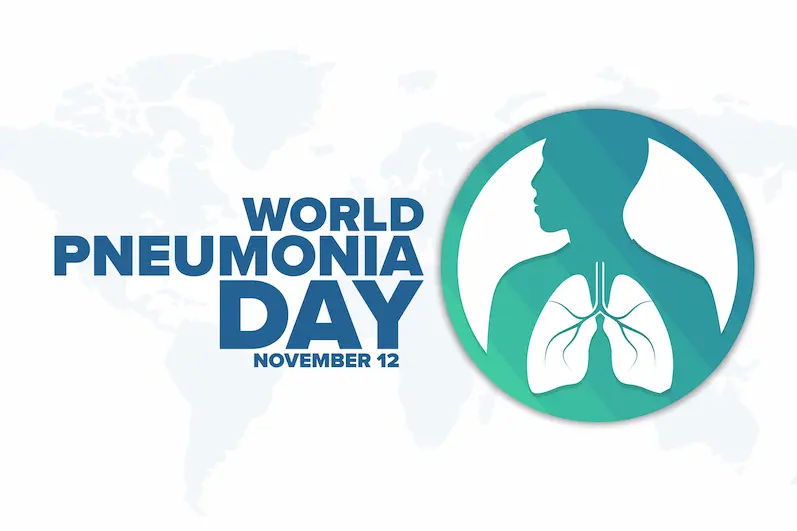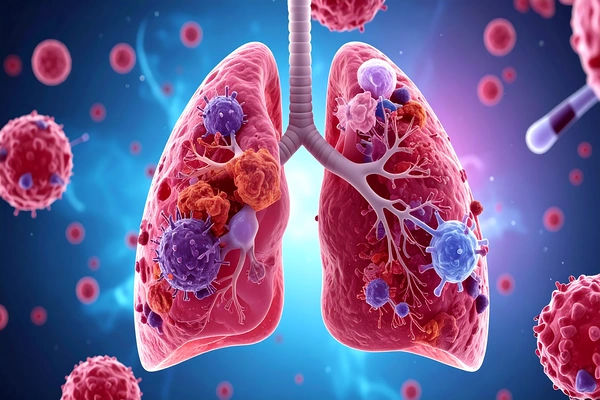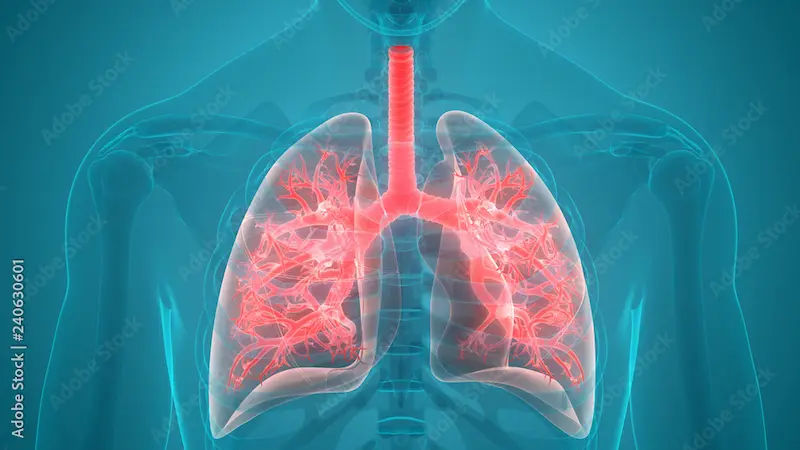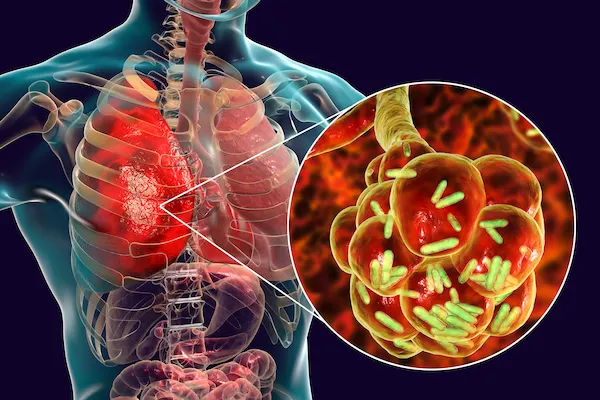Guide to Preventing Pneumonia In Cold Weather
Protect your lungs this winter. Learn essential tips for preventing pneumonia in cold weather, including vaccination, lifestyle changes, and when to seek medical care.

Written by Dr. Vasanthasree Nair
Reviewed by Dr. J T Hema Pratima MBBS, Fellowship in Diabetes Mellitus
Last updated on 13th Jan, 2026

Introduction
As the mercury drops and we retreat indoors, the season of cozy sweaters and hot beverages also brings a less welcome guest: an increased risk of respiratory illnesses, particularly pneumonia. This serious lung infection can turn a common cold or flu into a severe health threat, especially during cold weather. But knowledge is power, and with the right strategies, you can significantly reduce your risk. This comprehensive guide will walk you through exactly why winter creates the perfect storm for pneumonia, how to distinguish it from a common cold, and, most importantly, the proven steps you can take to protect yourself and your loved ones. From the essential role of vaccination to daily lifestyle tweaks, consider this your ultimate winter wellness manual.
Why Are Colder Months a High-Risk Season for Pneumonia?
The link between cold weather and respiratory illness isn't just an old wives' tale; it's grounded in science. Several factors converge during winter to create ideal conditions for the pathogens that cause pneumonia to spread and take hold.
The Impact of Cold Air on Your Respiratory Defenses
Our respiratory tracts are lined with tiny hair-like structures called cilia and a layer of protective mucus. This system acts as a conveyor belt, trapping dust, viruses, and bacteria and moving them out of the lungs. Cold, dry air can paralyze these cilia and thicken the mucus, impairing this crucial cleansing mechanism. This allows harmful invaders to settle deeper into the airways, potentially leading to infection.
Indoor Crowding and Increased Virus Transmission
Winter drives us inside into closer quarters with others, whether at home, in offices, or on public transport. This lack of ventilation and increased proximity makes it exponentially easier for viruses like influenza (a common precursor to viral pneumonia) and bacteria to jump from person to person through coughs, sneezes, and contaminated surfaces.
Low Humidity and Its Drying Effect on Airways
Heating systems, while keeping us warm, drastically reduce indoor humidity. This dry air parches the mucous membranes in our nose and throat, which are our first line of defense. Cracked, dry membranes are less effective at blocking pathogens, making it easier for them to enter our system.
Consult Top Specialists
Know Your Enemy: Understanding Pneumonia
Pneumonia is an infection that inflames the air sacs in one or both lungs. The sacs may fill with fluid or pus, causing a cough with phlegm, fever, chills, and difficulty breathing.
Bacterial vs. Viral Pneumonia: Key Differences
* Bacterial Pneumonia: Often more severe, it can occur on its own or after a cold/flu. The most common type in adults is caused by Streptococcus pneumoniae. It typically responds to antibiotic treatment.
* Viral Pneumonia: Caused by viruses like influenza, RSV, or SARS-CoV-2. It's often less severe but can create vulnerability to a subsequent bacterial infection. Antibiotics are ineffective against viruses.
Is It a Cold, Flu, or Pneumonia? Symptom Comparison
While a common cold might give you a runny nose and sore throat, and the flu brings on full-body aches and a high fever, pneumonia focuses on the lungs.
* Cold: Gradual onset, low or no fever.
* Flu: Sudden onset, high fever (100-102°F+), severe aches, fatigue.
* Pneumonia: Persistent fever, cough with green/yellow/rusty mucus, sharp chest pain that worsens with breathing or coughing, shortness of breath.
Your First Line of Defense: Proactive Prevention Strategies
Preventing pneumonia is far easier than treating it. A multi-layered approach is your best bet.
Vaccination: The Most Powerful Weapon
Vaccines are the single most effective way to prevent certain types of pneumonia.
Pneumococcal Vaccines: Who Needs Them?
The pneumococcal vaccine (PCV13, PCV15, PPSV23) protects against the most common bacterial cause. It's recommended for:
Adults 65 years and older.
Children under 2 years old.
People with chronic conditions (e.g., asthma, diabetes, heart disease) or weakened immune systems.
The Crucial Role of the Annual Flu Shot
Since the flu is a frequent cause of viral pneumonia, getting your annual influenza vaccination is a critical preventive step. It significantly reduces your risk of getting the flu and thus developing a secondary pneumonia infection.
Impeccable Hygiene Practices to Block Germs
* Handwashing: Wash hands frequently with soap and water for at least 20 seconds, especially after being in public spaces.
* Sanitize: Use an alcohol-based hand sanitizer when soap isn't available.
* Don't Touch Your Face: Avoid touching your eyes, nose, and mouth with unwashed hands.
* Respiratory Etiquette: Cough or sneeze into your elbow or a tissue, not your hands.
Lifestyle Fortification: Boosting Your Immune System
A robust immune system is your internal army.
Nutrition: Foods that Fight Infection
Focus on a diet rich in:
* Vitamin C: Citrus fruits, bell peppers, broccoli.
* Zinc: Lean meats, legumes, nuts, seeds.
* Antioxidants: Berries, leafy greens, nuts.
These nutrients are vital for producing white blood cells and antibodies that combat infection.
The Importance of Hydration and Rest
Staying well-hydrated keeps your mucous membranes moist and functional. Aim for 8 glasses of water daily. Prioritize 7-9 hours of quality sleep per night, as sleep is when your body repairs itself and strengthens its immune defenses.
Tailored Protection for High-Risk Groups
Some people need to be extra vigilant.
Extra Precautions for Seniors and Young Children
These groups have less robust immune systems. Ensure they are up-to-date on vaccinations, minimize their exposure to large crowds during peak flu season, and be hyper-aware of any emerging symptoms.
Managing Chronic Conditions in Winter
Those with asthma, COPD, diabetes, or heart disease must work with their doctor to keep their condition well-controlled. A flare-up of a chronic illness can make you far more susceptible to severe complications from pneumonia.
Recognizing Early Warning Signs and Symptoms
Early detection leads to easier treatment. Be on alert for:
A persistent cough that produces mucus.
Fever, sweating, and shaking chills.
Shortness of breath or rapid, shallow breathing.
Sharp or stabbing chest pain that worsens when you breathe deeply or cough.
Unusual fatigue, loss of appetite, and nausea.
When to Seek Immediate Medical Attention?
Do not wait if you or a loved one experience:
Difficulty breathing or severe shortness of breath.
A fever of 102°F (39°C) or higher that persists.
Persistent chest pain.
A cough that is worsening, especially if you are coughing up pus.
Confusion or changes in mental awareness (especially in older adults).
If these severe symptoms appear, it is crucial to consult a doctor immediately. You can book a quick online consultation with a pulmonologist on Apollo24|7 for an initial assessment and to determine if a physical visit or tests are needed.
Conclusion
Navigating the cold weather doesn't mean you have to live in fear of pneumonia. By understanding the risks and implementing a strong defense strategy—centered on vaccination, impeccable hygiene, and a healthy lifestyle—you can build a powerful shield for yourself and your family. Remember, prevention is always better than cure. Pay attention to your body's signals, and don't hesitate to seek professional medical advice if symptoms escalate. A proactive approach is your best tool for enjoying a healthy, vibrant winter season. If you have any underlying health conditions or are in a high-risk group, talking to a doctor on Apollo24|7 can help you create a personalized prevention plan.
Consult Top Specialists
Consult Top Specialists

Dr Syed Mateen Pasha
General Physician
2 Years • MBBS
Bengaluru
PRESTIGE SHANTHINIKETAN - SOCIETY CLINIC, Bengaluru

Dr Aakash Andgi
General Physician/ Internal Medicine Specialist
9 Years • MBBS MD
Bengaluru
Apollo Clinic, JP nagar, Bengaluru

Dr. Vivek D
General Physician
4 Years • MBBS
Bengaluru
PRESTIGE SHANTHINIKETAN - SOCIETY CLINIC, Bengaluru

Dr. Harshendra Jaiswal
General Physician/ Internal Medicine Specialist
12 Years • MBBS , MD (General medicine)
Kolkata
108 DHANA DHANVANTARI Clinic, Kolkata
(25+ Patients)

Dr. Syed Ismail Ali
General Practitioner
7 Years • MBBS
Hyderabad
Apollo 24|7 Clinic, Hyderabad
More articles from Pneumonia
Frequently Asked Questions
1. Can you get pneumonia from being cold and wet?
Not directly. However, being cold and wet can temporarily weaken your immune response, making it easier for pathogens you're already exposed to to establish an infection like pneumonia.
2. What is the difference between bronchitis and pneumonia?
Both affect the lungs, but in different areas. Bronchitis is an inflammation of the bronchial tubes (airways), causing a persistent cough. Pneumonia is an infection deeper in the air sacs (alveoli) and is typically more severe, with higher fever and shortness of breath.
3. How long does it take to recover from pneumonia?
Recovery time varies. Younger, healthy people may feel better in 1-2 weeks. For the elderly or those with other health problems, it can take several weeks or even months to regain full strength.
4. Are there any effective home remedies for pneumonia prevention?
While no home remedy can guarantee prevention, supporting your immune system is key. This includes staying hydrated, drinking warm fluids like broth or tea, using a humidifier, eating a nutrient-rich diet, and getting plenty of rest.
5. Is pneumonia contagious?
The pneumonia itself is not contagious, but the bacteria and viruses that cause it are. You can catch the germs from an infected person, but whether you develop a cold, the flu, or pneumonia depends on your immune system and overall health.




